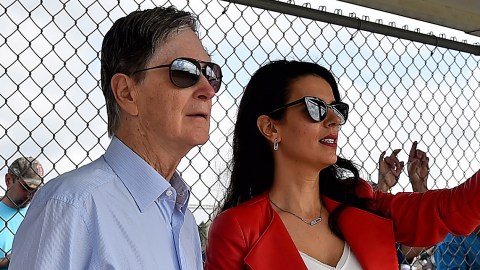 Tracy McGrady snuck up on us, as much as a well-hyped, insanely talented high school phenom can sneak up on anybody.
Tracy McGrady snuck up on us, as much as a well-hyped, insanely talented high school phenom can sneak up on anybody.
He came to the NBA the year immediately following Kobe Bryant‘s arrival, with the league still trying to figure out if this kid from Philadelphia was any good and not ready to declare a new straight-to-the-pros star, especially a sleepy-eyed Floridian, the “next” whatever. He was clamped to the bench for his first two seasons, didn’t generate much excitement until he was paired with his cousin Vince Carter in Toronto in year three and was gone for Orlando by year four.
But the kid was good, man. If only anybody had bothered to notice.
With McGrady announcing his retirement on Monday, the triumphant and tragic nature of his NBA career came into stark relief. He was arguably the best player in the league for a time, winning back-to-back scoring titles and making seven straight All-Star games. The fact that his era was dominated by the oh-so-boring Spurs, Pistons, Nets and Heat was fitting, because it meant fewer fans were watching the league as a whole, so fewer were witnessing McGrady’s brilliance.
Go back and watch McGrady’s 13 points in 33 seconds from December 2004. If LeBron James did something like that today, Stephen A. Smith‘s head might explode on live television. If Michael Jordan had done something similar a decade earlier, Kevin Harlan would have needed a towel and some smelling salts. If there had been YouTube, McGrady’s performance might have crashed the fledgling video-sharing site’s servers.
Granted, McGrady’s exploits did not happen behind a curtain. Nobody had any trouble noticing when McGrady made his infamous offhand comment in 2003, with the Magic holding a 3-1 lead over the Pistons, that he was happy to “finally be in position to advance to the second round.” Yet that seemingly innocent remark was warped and misquoted into McGrady expressing hubris. Now, it’s all anyone seems to remember about McGrady — as though they remember it at all, and aren’t merely regurgitating the bastardized version of the quote they heard secondhand portraying McGrady as a cocky jerk.
The debate over McGrady’s Hall of Fame worthiness that popped up on social media immediately following his announcement was the perfect summation. Of course McGrady is a hall of famer. If the NBA makes a list of the 75 greatest players of all time for its 75th anniversary, expanding on the list of 50 for its 50th anniversary in 1996, McGrady will be on the list. (Apparently, SLAM magazine already did this. Not surprisingly, McGrady is there.) If his career resembles anyone’s, it is Bernard King‘s, a similarly gifted scorer whose achievements were overlooked due to injuries and the era in which he played, overshadowed by the greatness of Magic Johnson, Larry Bird and Isiah Thomas. But McGrady was a superior all-around player to King, who was inducted into the hall of fame this year, and he was higher up in the rankings of his generation’s greatest players.
More than anything, however, McGrady was a winner in his own way. As players age, their devoted fans become inspired by their constant struggles against the limitations forced upon them by their bodies. Mickey Mantle‘s battles with his degenerative knees and Bird’s late trouble with his back have become part of their legends.
By contrast, McGrady dealt with those issues virtually his entire career. Back spasms in his early 20s gave way to knee problems in his late 20s. Then his shoulder went, followed by his back again. (I think. It became hard to keep track later on in his career.) When he was healthy, Grant Hill or Yao Ming weren’t, which meant McGrady took the hardwood with a supporting cast led by Darrell Armstrong or Rafer Alston. The fact that McGrady’s teams won 50 games as regularly as they did, while sharing a division with the other two Texas heavyweights for the majority of the time, was a minor miracle.
McGrady kept bouncing around the globe over the last four years, from New York to Detroit to Atlanta to China to, finally, San Antonio. The most fitting bookend to his career, though, came in 2007. Yao was healthy for the playoffs, for once, but the Rockets were unquestionably McGrady’s team.
He led them to a decisive seventh game, which was won by the Utah Jazz, who would go on to reach the Western Conference Finals. He averaged 25.3 points per game in that series — the first time in five postseasons that he failed to average at least 30 — and posted 29 points, 13 assists, three blocks and just two turnovers in a Game 7 performance that was not at all atypical for him. But it was his press conference after the loss, more than his showing on the court, that showed McGrady for who he truly was. He was a player most people would have loved rooting for, if they had only turned on their TVs long enough to get to know him.
“I said this team was going to go as far as I could take them,” McGrady said, tears welling up in his eyes. “And I tried my best. … I tried, man. I tried.”
Have a question for Ben Watanabe? Send it to him via Twitter at @BenjeeBallgame or send it here.



